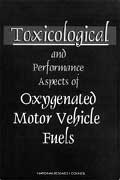Boon or bane?
Boon or bane?

Motor vehicle exhaust emissions are the primary source of ambient carbon monoxide (CO) levels in most metropolitan cities. People with coronary artery disease are particularly sensitive to adverse effects of CO, which is formed due to incomplete fuel combusion in a motor vehicle engine. Addition of oxygenates to gasoline mitigates this problem.
During the winter months of 1992-93 at many places in US, methyl tertiary-butyl ether (MTBE) oxygenated gasoline programmes were introduced to reduce exhaust CO emission in motor vehicles. Concurrently, with its start, MTBE has been implicated in complaints of headaches, coughs, and nausea, pollution of groundwater, reduced fuel economy and deterioration of engine performance. In order to address public concerns over these issues, scientific studies have been conducted by the US Environmental Protection Agency (EPA) and others. USPEA in turn requested federal agencies to make a comprehensive assessment of the effects of oxygenated gasoline programmes.
This book is an independent review by the National Research Council, an affliate of the Academy of Sciences, USA, of this federal assessment. The committee agrees with this assessment that use of oxygenated gasoline results in a fuel-economy penalty of approximately two to three per cent but says that engine performance is typically not adversely affected. On the basis of the small amount of monitoring data MTBE has been detected in less than five per cent of ground water samples tested. More needs to be known about the biodegradation of MTBE and other alkyl ether oxygenates in surface water, soil and ground water.
It considers it noteworthy that the available data consistently indicates that exposures to gasoline containing MTBE, in occupational settings are associated with an increased rate of acute symptoms. It also agrees that the data is too limited to evaluate effectiveness of winter oxygenated fuel programme in lowering CO exposures to a level that would reduce the risk of intensifying cardiovascular disease.
According to the committee, the apparent advantage of a strategy to use oxygenated fuels is expected to dissipate with time as vehicles with advance emission control systems replace older vehicles in the US.







